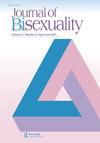朱迪思·巴特勒颠覆了性别二元论吗?我们来谈谈性(性偶极子)
IF 1.9
Q2 SOCIAL SCIENCES, INTERDISCIPLINARY
引用次数: 1
摘要
性别不是一个本体论范畴的原因似乎有令人信服的论据。尽管对主体(和我们的世界)的本体论适应的解构为理解主体及其结构开辟了新的可能性,但在相关文献中可以发现一些陷阱。特别是,拒绝主体本质论理解的理论隐含地保留了它所拒绝的本体论的残余。一个恰当的例子是反本质主义关于性别的观点,它隐含地依赖于它想要抛弃的性别二元论。在本文中,我批判性地探讨了朱迪思·巴特勒对性别认同的立场,以及她颠覆性别二元主义的目标。巴特勒的立场是基于性别是非本体论的范畴。我的主要观点是,她通过同性恋的例子颠覆性别二元主义的努力并不像相关文献所假设的那样富有成效(例如,考虑到巴特勒斯的作品在女权主义和酷儿理论、文化研究和其他领域都有很大的影响力)。性别二元论的颠覆在同性恋的例子中是有问题的,因为同性恋坚持身体二元论,因此它的“原始”肉体,就像异性恋一样:在异性恋和同性恋中,身体的性别仍然决定了一个人的性取向和她/他对伴侣的选择。因此,与相反的断言相反,我认为同性恋仍然被困在“性别实质的形而上学”中。我以讨论为什么双性恋逃避了身体的二元性和性别的二元性来结束本文。本文章由计算机程序翻译,如有差异,请以英文原文为准。
Does Judith Butler subvert gender binarism? Let’s talk about sex(ual dipoles)
Abstract It seems that there are compelling arguments why gender is not an ontological category. Although the deconstruction of the ontological accommodation of the subject (and of our world) has opened up new possibilities of understanding the subject and its structures, some pitfalls can be detected in the relevant literature. In particular, the theory that rejects essentialist understandings of the subject implicitly retains vestiges of the ontology that it rejects. A case in point is the anti-essentialist view on gender in its implicit reliance on the gender binarism that it meant to discard. In the present article, I critically engage with Judith Butler’s position on gender identity and with her aim of subverting gender binarism. Butler has based her position on grounds of gender as a non-ontological category. My main argument is that her effort to subvert gender binarism in and through the example of homosexuality is not as fruitful as the relevant literature has assumed (consider, for instance, that Butlers’ work has been highly influential in feminist and queer theory, cultural studies and other fields). Gender binarism subversion in and through the example of homosexuality is problematic because homosexuality adheres to the body binarism, thus to its “raw” corporeality, as much as heterosexuality does: in both heterosexuality and homosexuality, the sex of the body still determines one’s sexual orientation and her/his choice of partner(s). Thus, contra assertions to the opposite, I argue that homosexuality remains trapped in the “metaphysics of gender substance.” I conclude this article by discussing why bisexuality escapes the body binary and thus gender binarism.
求助全文
通过发布文献求助,成功后即可免费获取论文全文。
去求助
来源期刊

Journal of Bisexuality
SOCIAL SCIENCES, INTERDISCIPLINARY-
CiteScore
2.60
自引率
17.60%
发文量
32
期刊介绍:
The Washington Quarterly (TWQ) is a journal of global affairs that analyzes strategic security challenges, changes, and their public policy implications. TWQ is published out of one of the world"s preeminent international policy institutions, the Center for Strategic and International Studies (CSIS), and addresses topics such as: •The U.S. role in the world •Emerging great powers: Europe, China, Russia, India, and Japan •Regional issues and flashpoints, particularly in the Middle East and Asia •Weapons of mass destruction proliferation and missile defenses •Global perspectives to reduce terrorism
 求助内容:
求助内容: 应助结果提醒方式:
应助结果提醒方式:


